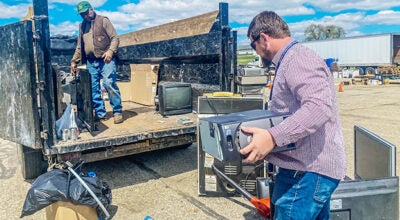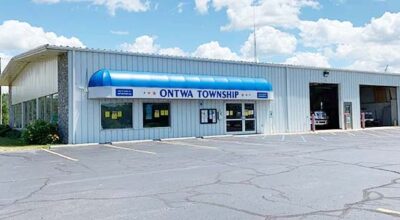Cass phasing in four-year roadside brush herbicide
Published 8:45 am Wednesday, March 31, 2010
CASSOPOLIS – Cass County Road Commission will implement a spraying program this fall to begin controlling brush and weeds along the county’s primary roads.
The program, which will be phased in across the county’s 15 townships over four years, is being done in response to decreased state funding and the resulting reduction in the road commission’s workforce.
Until this year, the commission has controlled brush and weeds through spot mowing throughout the summer months.
However, for a more permanent solution to brush control, a spraying company with licensed crews will apply herbicides in the fall along the roadways.
Preparations will be initiated this spring when road crews cut all brush 16 feet from the edges of the 79 miles of primary roads in Silver Creek, Wayne, Pokagon and LaGrange townships.
They will use two new boom mowers the road commission purchased for $35,000 each and which are expected to be delivered next week.
The mowers can remove brush up to two inches in diameter.
A new Bobcat skid steer with a forestry head will be used to remove trees up to four inches in diameter.
Cost of that equipment was $58,000.
“If we don’t cut the brush down first and not spray until fall, you will see all the dead brush along the road. So we really do the cutting early so people don’t have to look at all the dead brush after the spraying is done,” Louis Csokasy, road commission manager, said Tuesday.
He also said that trees in some locations are growing so far out over the roadway that they are being hit by cars, trucks and school buses.
Herbicides that will be used for spraying are Tordon(r) K, Garlon(r) 4, both produced by Dow AgroSciences, LLC, and Escort(r) XP, which is manufactured by DuPont.
According to a report received from the county’s Michigan State University Extension Service, the products are used extensively in several other Michigan counties that are progressive in their approaches to brush control.
The program will take four years to implement, with one-fourth of the county completed each year.
Cost of the four-year project is about $160,000.
“A real reason for doing this is to take back our road right of ways,” said Csokasy, who added that the road commission has 8,000 acres of right of way beyond the white lines.
Spraying for each of the four years is expected to kill 90 percent of the brush.
The second application, four years from the first, is projected to kill 90 percent of the last 10 percent of the brush, he said.
In 2011, the road commission will implement the brush and tree clearing and spraying application in Howard, Jefferson, Milton and Ontwa townships.
Csokasy expects to make presentations to all townships this summer with representatives of the chemical companies on hand to explain the application in detail.
Cass County contracted out a spraying program several years ago but discontinued it because of complaints of damage to agricultural products.
The road commission plans to avoid that problem this time around as all operators must be certified by the State of Michigan.
The road commission also plans to clear brush on local roads for the townships, at their request.
The townships then would be asked to pay for any spraying through contracts handled by the commission.
Csokasy said property owners will be given the opportunity to opt out of the brush cutting and spraying program by signing a contract agreeing to take responsibility for controlling the brush.
If, however, the work is not done, the road commission will assume that responsibility.






